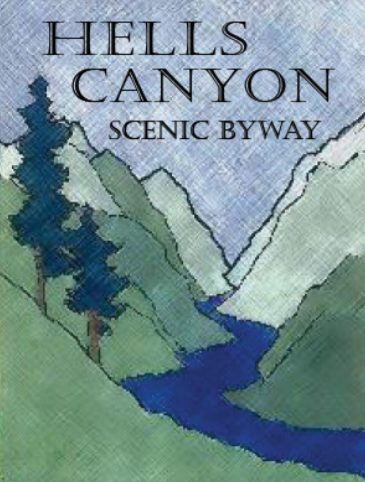PENDLETON, BAKER CITY, and JOHN DAY, OREGON__Forest officials for the Umatilla, Wallowa‐Whitman, and Malheur National Forests urge caution and announce seasonal safety regulations for building campfires when recreating on the three national forests.
Campfires will continue to be the centerpiece of family campsites across Northeast Oregon’s three national forests. However, beginning June 1, forest visitors are required to build their campfire in a fire pit surrounded by dirt, rock, or commercial rings, in areas cleared of all flammable material within a three‐foot radius from the edge of the pit and free of overhanging material. A shovel and one gallon of water are required to be in your possession while building and tending campfires. These requirements also apply to the use of charcoal briquettes.
Forest managers understand campfires are an important part of the outdoor camping experience.
“The intent is to allow campfire use while promoting safe campfire building techniques that, in the long run, will protect lives, property, and our natural landscapes,” said Brian Goff, Umatilla Fire Management Officer.
The seasonal regulation does not prohibit the use of campfires, when conditions permit; it only designates proper conditions for safe campfires. The June 1 date for campfire safety regulations in dispersed and developed campsites is meant to encourage campfire safety before fire season comes full‐swing.
“There’s a long history of wildfire in the Blue Mountains and we do not expect that to change. This summer will be particularly challenging,” added Goff. Though lightning is the number one cause of wildfires in this area, human‐caused wildfires are preventable, unpredictable and can occur anywhere with no warning.
“Historically, the public has practiced safe campfire techniques and it is much appreciated,” shared Bret Ruby, Wallowa‐Whitman Fire Management Officer. “However, the potential for large human‐caused wildfires still exists,” added Ruby.
Seasonal campfire regulations are in effect June 1 through October 31, unless more restrictive measures are warranted. During times of high or extreme fire danger, forests will implement additional Public Use Restrictions, also known as PURs, which will further restrict the use of campfires, chainsaws, smoking, and travel. PURs will be implemented in phases, based on increased fire danger, hot and dry weather conditions, and concern for public safety.
“We get very busy at this time of year dealing with the numerous lightning caused fires, so preventing the added workload from human caused wildfires is our ultimate goal,” said Roy Walker, Malheur Fire Management Officer.
Forest officials recommend the following campfire safety precautions:
• Always abide by local campfire laws. • Only adults should build and maintain campfires. • Find a shady spot away from dry logs, overhanging branches, bushes, needles, or leaves. • Use existing fire‐rings where it is safe to do so. Don’t build fire‐rings in roads. • Keep campfire rings small and use wood no bigger than the ring. • Keep tents and other burnable materials away from the fire. • Never leave a campfire unattended. Those leaving campfires unattended can be billed for the cost of fire suppression. • Drown the campfire with water and stir charred material. • When leaving, make sure your fire is DEAD OUT. Very carefully feel all sticks and charred remains. Make sure no roots are smoldering. If it’s too hot to touch, it’s too hot to leave.Find more campfire safety information at http://www.smokeybear.com/campfire‐safety.asp.
Please call the appropriate Forest’s Information Hotline for up‐to‐date restriction information:
Umatilla National Forest Information Hotline: Toll‐Free, (877) 958‐9663
Wallowa‐Whitman National Forest Information Hotlines: Baker City, (541) 523‐1234; La Grande, (541) 962‐8679; Joseph, (541) 426‐5552
Malheur National Forest Information Hotline: John Day, (541) 575‐3000
